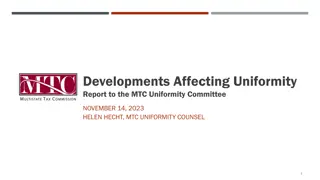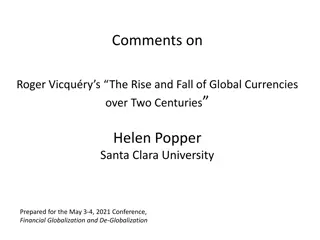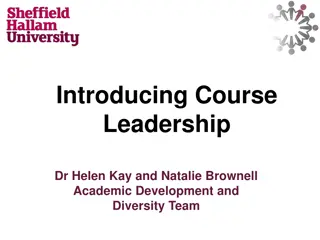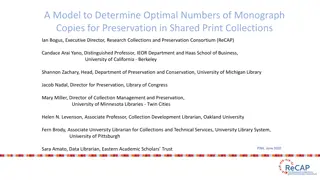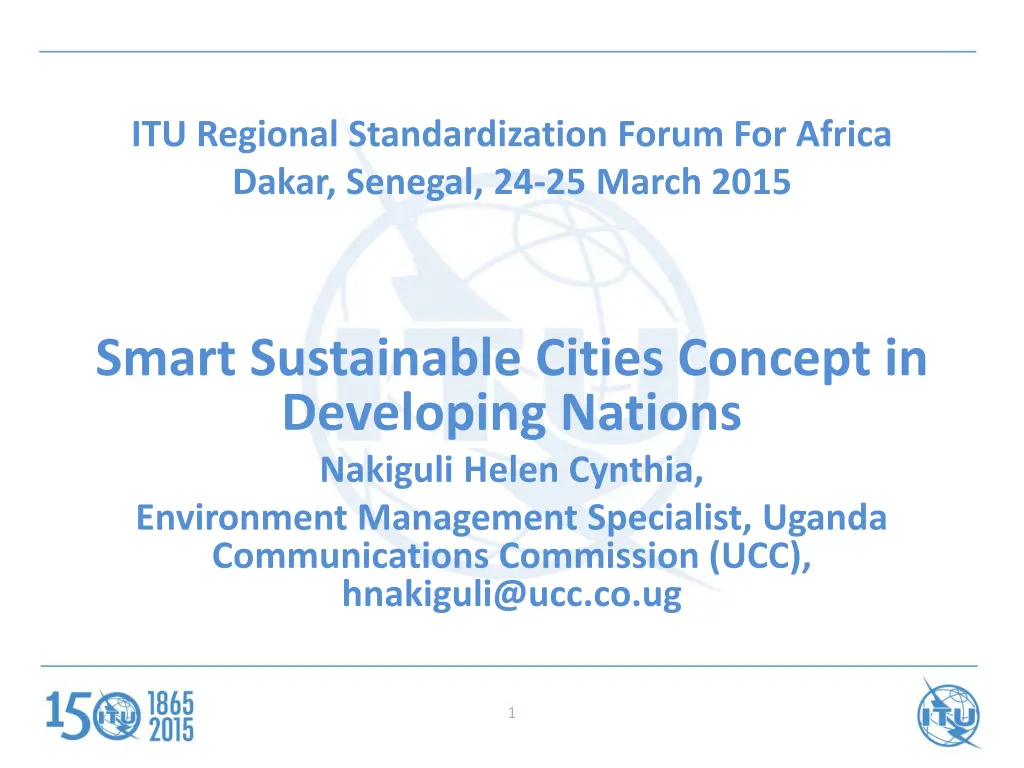
Sustainable Cities Concept in Developing Nations
Explore the challenges and opportunities of developing smart sustainable cities in developing nations, focusing on infrastructure, urbanization, and the perception of smart cities. Learn about the importance of utilizing existing infrastructure and leveraging ICT for future growth.
Download Presentation

Please find below an Image/Link to download the presentation.
The content on the website is provided AS IS for your information and personal use only. It may not be sold, licensed, or shared on other websites without obtaining consent from the author. If you encounter any issues during the download, it is possible that the publisher has removed the file from their server.
You are allowed to download the files provided on this website for personal or commercial use, subject to the condition that they are used lawfully. All files are the property of their respective owners.
The content on the website is provided AS IS for your information and personal use only. It may not be sold, licensed, or shared on other websites without obtaining consent from the author.
E N D
Presentation Transcript
ITU Regional Standardization Forum For Africa Dakar, Senegal, 24-25 March 2015 Smart Sustainable Cities Concept in Developing Nations Nakiguli Helen Cynthia, Environment Management Specialist, Uganda Communications Commission (UCC), hnakiguli@ucc.co.ug 1
Will the existing infrastructure of the cities of developing countries support the increasing urban population? Which cities of developing countries will grow smarter and sustainable? Is Urbanisation in developing countries = Smart Sustainable Cities? 2
Definition - ITU A smart sustainable city is an innovative city that uses information and communication technologies (ICTs) and other means to improve quality of life, efficiency of urban operation and services, and competitiveness, while ensuring that it meets the needs of present and future generations with respect to economic, social and environmental aspects . 3
Perception of smart cities In the developed World High tech- digital infrastructure Perfect transport system- electric car model, Robotic assistance, man-robot discussions Systems working with systems Machines talking to machines This makes sense to the developed countries but not yet quite realistic in developing countries In developing countries, perceptions are still forming... Cities are still grappling to achieve access to basic needs- water, shelter, food (rural) Improved living conditions education, health (urban) Economic growth This makes the smart cities concept challenging 4
Can the developing advance to this perception? What is needed? Building on existing infrastructure, Increasing the enabling effect of ICT in other sectors, Building on mistakes of the developed- Advantage of late starters; 98% of people in Atlanta own cars- poor transport systems, emissions 5
Utilise or build on existing infrastructure Will the city infrastructure support the increasing urban population? Urban population expected to double in 2050 90% increase will be in developing countries Urbanisation helps people out of poverty and advances towards economic development Urban areas provide agglomeration for industrial and service sectors If not well managed, may lead to growth of slums, pollution, crime, unemployment etc; 6
In developing countries, high rates of urban poor who are less privileged to services and infrastructure Slums- 61%-Asia; 5.5% -Africa; 13.4- Latin America 7
Infrastructure- the building blocks are already available- technological, physical, social Technological Tele density Mobile/fixed subscription Products and services Mobile Financial services M-health M-agric M-banking 8
Physical Building the whole city and not just the top tiers of society Energy Water Transport Building Aging infrastructure- city can be built from scratch and made better Social Health Safety Happiness- job employment, security, connectivity Education Good leadership 9
Increase the enabling effects of ICTs Efficiency Substitution (dematerialisation) Support systemic effects- green consumerism uncertainties- new threats (crime, theft), vulnerabilities, rebound effect, impact of relationships (human, social) ..Policies/strategies in place to anticipate 10
Communi cation Transport, ICTs Water Energy 11
Which cities of developing countries will grow smarter and sustainable? Those with developing communities and not just the infrastructure Indicators Sustainable development Environment conservation Social inclusivity Poverty mitigation etc Inputs: Policies, awareness, infrastructure, the will 12
Is Urbanisation = Smart Sustainable Cities Urbanisation in developing countries is a necessity for economic development. However, if not well managed and prepared for, can lead to low standards of living. Urbanisation will only equal to Smart Sustainable Cities; if there is convergence between digital technology and the energy world. This will pave way for a new ecosystem of services which will enable both a better quality of life and reduced energy consumption. 13
Key aspects of building smart sustainable cities in developing nations Political will Policies, framework and strategies Affordable access and availability of Broadband to all Even better infrastructure development- renewable energy sources (Africa is gifted), addressing the basic need Enhance intergovernmental/inter-sectoral collaborations Subsidies for adoption to Greener ICT solutions Investing in tech infrastructure- developing incubators and innovation centres/hubs Tech and entrepreneurship skills Local content- accurate, appropriate, local relevance Create more cities- spread the population 14
Thank you 15



